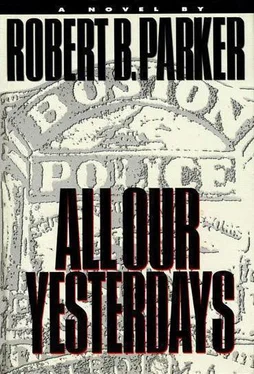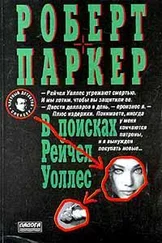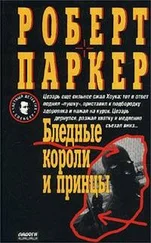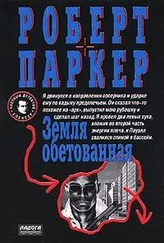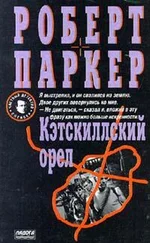“Honor,” Butchie said, “among thieves.”
Gus took off his jacket outside the three-story frame house. He slid into the fiberglass vest and tightened the strap. Everyone was out of the cars. Three of the uniforms carried shotguns. Two of the uniforms went around to the back of the house.
“Chris, wait in the car,” Gus said. “This one won’t go smooth.”
“No,” Chris said. “I’m the special investigator. In theory I’m in charge.”
Gus started to speak, stopped, looked at his son.
“That’s right,” he said. “Billy, get him a vest.”
Billy Callahan got a vest from the trunk and helped Chris put it on.
“You know what to do,” Gus said.
Billy nodded.
Two uniforms took up positions in front, and two, one with a shotgun, followed Gus and Chris and the two detectives up onto the front porch of the house. They spread out on either side of the front door. Callahan stood between Chris and the door. He and Cassidy both had their guns out, at their sides. Gus rang the bell. No sound. He rang it again. Some women walking baby carriages on the narrow street stopped. One of the uniforms spoke to them and they moved down the street and lingered near the corner watching. Nearby someone was cooking onions. Gus tried the knob. It didn’t turn. He turned and nodded to Billy Callahan. Billy stepped forward and drove his foot against the door near the knob. The wooden jamb gave way, and the door burst inward. Gus and John Cassidy went in. Billy came behind them in the cabbage-smelling hallway, still in front of Chris, and the three of them headed toward the back door, open at the far end. They paused at the back door. There was movement in the yard, and someone shouted. Gus and Cassidy went through the door and down the back stairs with the two uniforms. The uniforms fanned out to either side of Gus; the one with the shotgun had it at his shoulder. The yard was shallow, mostly dirt with some unsuccessful grass scattered in occasional patches. Two weedy sumacs shadowed most of the yard, and some unhealthy-looking shrubs marked the boundaries. The two uniforms who had been guarding the rear stood one on either side of the back stairs to the next three-decker, weapons aimed.
Pat Malloy stood near one of the sumacs. He was red faced and breathing hard. There was sweat on his forehead. He held a big pistol in his hand, by his side, pointed at the ground. Chris thought it looked like the Colt .45’s that the army used to issue. Pat’s brother, Kevin, was beside him, with no weapon showing, and a third man whom Gus didn’t know.
“I ain’t going in, Gus,” Pat said. His voice was raspy.
“You got to, Patrick,” Gus said.
“No.”
“Don’t be art asshole,” Gus said. “Look around.”
“Fuck you,” Patrick said, and brought the gun up. Chris was trying to see, blocked as he was by Billy Callahan’s bulk. He knew that wasn’t accidental. It was what Gus had meant by You know what to do . Everyone fired, the sound of the police-issue 9-mm’s sharper than the heavy boom of two shotguns. Kevin Malloy, and the man Gus didn’t know, fell flat, facedown. Pat Malloy was turned half around by the gunfire, the front of his shirt was suddenly rich with blood, and he fell all at once, landing on his left: side with his legs twisted under him and the big .45 still in his hand.
The silence after the gunfire was ringing. Gus thought for a moment how it was always like that, as if all life had been suspended and there was only silence and the smell of the gunfire. He looked at Chris. He seemed steady. Facedown on the ground Kevin Malloy kept repeating, “No trouble, no trouble.” He and the other man had their hands clasped behind their heads.
“Heard about Butchie,” Cassidy said with no emotion in his voice.
“Yeah,” Gus said.
He looked at Kevin and the other man.
“I got no interest in you, beat it.”
Kevin stayed flat on the ground.
“You ain’t going to shoot us and say we were trying to escape?”
“No. We need you well come get you.”
Both men got up carefully, and moved very slowly toward the back stairs. They went up the stairs and into the hallway.
“Wrap this up,” Gus said to Chris. “I’m going.”
Chris nodded.
“Captain,” Cassidy said, “you can’t—”
“Chris will handle it,” Gus said.
“For Crissake, Captain, I don’t even know why we came to get him.”
“Go ahead,” Chris said to his father.
They looked at each other for a moment, and Gus smiled suddenly.
Then he walked through the house and out the front door to his car.
Behind him he heard Cassidy saying, “What do I tell the shooting team?”
“I’ll take care of it,” Chris said.
Each with a drink, Gus sat across the kitchen table from Peggy. The table was white enamel, with folding leaves at either end. When he used to come home for supper, he had sat on this side and she had sat on that side, and Chris had sat at the end, with one of the leaves folded out to make room for him. Peggy had always cooked simple things adequately — with the emphasis on hamburgers, and Kraft dinner, frozen peas, and meat loaf. She was proud of her meat loaf, which she made with packaged stuffing mix.
It hadn’t been so bad once. The child was there, and it gave their lives a center, and their purpose a commonality. When he was with them they talked with him. When they were alone, they talked about him. Even at night, lying in their twin beds, they would talk sometimes about Chris.
Then he grew up and went away, and there was nothing to talk about, and the distance between their beds became unbridgeable.
And now it was about to end.
“So how was work?” Peggy said. It was her first drink and she wasn’t slurring her words yet.
Gus gave a small laugh.
“Kind of a big day,” Gus said.
Peggy’s face was tight. She was scared. She had been scared since Gus said, “Let’s have a drink.”
“Will you get a raise or a promotion or anything?” Peggy said.
Again Gus did that laugh.
“No,” he said. “I don’t think so.”
“Too bad,” Peggy said. “I saw a nice dining room set I was thinking about getting. I was shopping with Rose Mary, and you know I’m a shopper. I know where the bargains are. And we went into the discount place on Morrissey Boulevard, I know quality, you know that. Well, there was a solid mahogany table, four chairs, and a sideboard...”
Gus leaned back and closed his eyes.
He said, “I’m in bad trouble, Peggy.”
She felt the scaredness sharpen and thrill along her nervous system.
“What have you done?”
He took a long pull on his drink, and swallowed and took in a long breath and let it out and told her. While he told her she sat staring at him with an uneasy, half-embarrassed expression. He spoke slowly. He knew she had trouble tracking ideas, and when she was scared, which he knew to be often, she was unable to grasp even the most ordinary of remarks. It was a catatonic terror that hid behind her half-embarrassed, slightly quizzical expression.
When he finished, she was silent for a moment and then she said, “What?”
“I been on the take,” Gus said. “I covered up three murders. I’m going to turn state’s evidence.”
Peggy’s face got paler than it had been and the lines around her mouth and nose became deeper.
“What’s going to happen to me?” she said.
“You’re going to be all right,” Gus said. He took out a bank book and handed it to her. “There’s money. It’s in your name,” he said. “Chris’ll help you manage it.”
She took the bank book and stared at it, without any sign that she knew what it was.
Читать дальше
